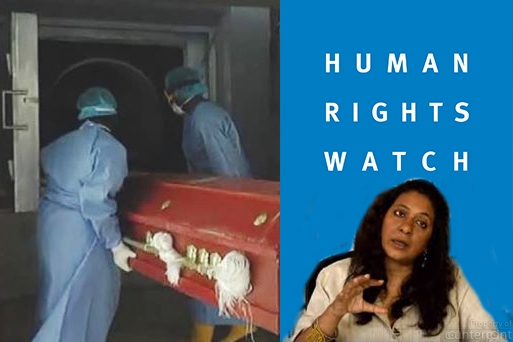The Human Rights Watch has said that Sri Lanka’s requirement to cremate anyone who dies from Covid-19 goes against public health guidance and discriminates against the Muslim community,
The government’s spurious argument that burial in accordance with Islamic tradition poses a public health risk stigmatizes, oppresses, and causes immense distress to a vulnerable minority.
The Sri Lankan government has claimed that burying people who died of Covid-19 complications may “contaminate ground water.” It has not changed the policy, first codified in a March 31, 2020 regulation, despite World Health Organization guidelines that burial is safe, and growing opposition from United Nations experts, medical professionals in Sri Lanka, and religious leaders of all major faiths in the country. Among those cremated against the wishes of their family have been a 20-day-old infant and a woman whom the authorities later acknowledged did not have Covid-19.
“For families already grieving the loss of a loved one, the government’s forced disposal of remains in a manner contrary to their beliefs is an outrageous and offensive assault on religious rights and basic dignity,” said Meenakshi Ganguly, South Asia director at Human Rights Watch. “This policy only serves to cultivate intolerance and social division.”
In recent weeks the policy has sparked protests around the country. Authorities removed strips of white cloth that activists tied to the fence of the Borella General Cemetery crematorium in Colombo to protest the forced cremation of the baby.
Several Muslim families have decided to leave the body of their loved ones who died of Covid-19 complications in hospital mortuaries rather than to permit cremation. Others say they have been coerced into allowing the cremation, or that it occurred without their knowledge.





